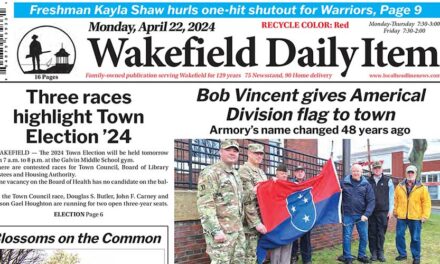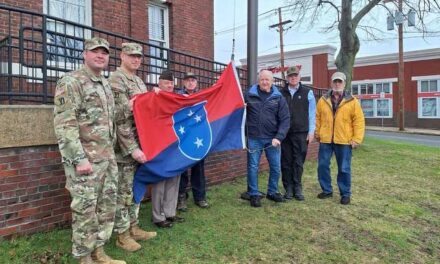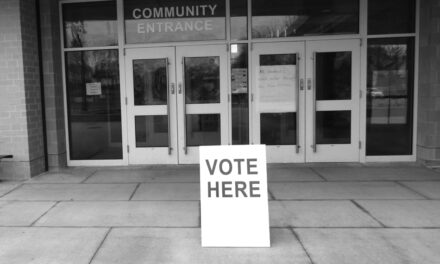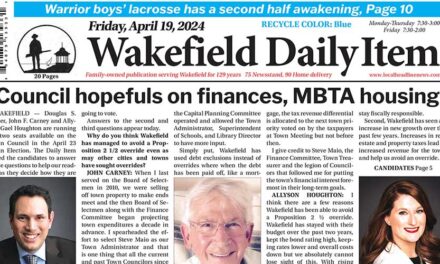Published in the October 21, 2015 edition
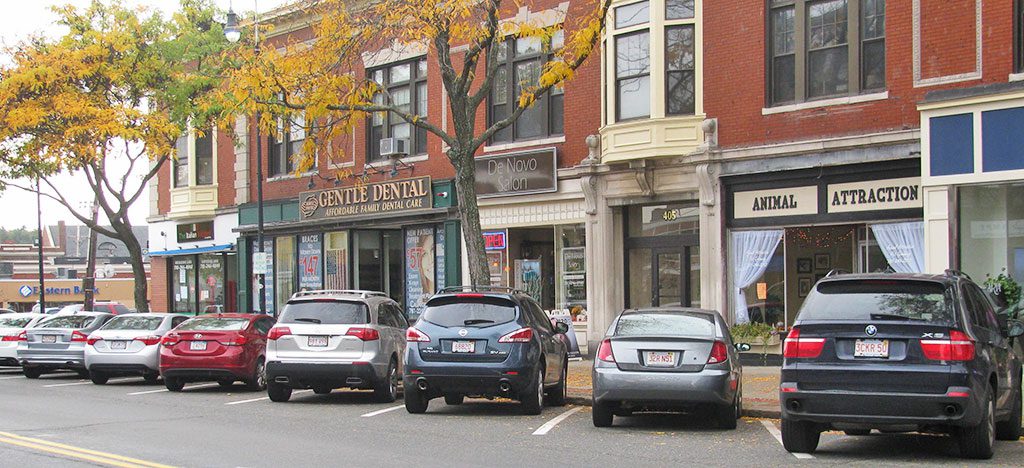
EVEN AMONG those who believe there is a parking problem, opinions on how to solve it are probably as numerous as licensed drivers in town. (Mark Sardella Photo)
By MARK SARDELLA
Is there a parking problem in downtown Wakefield?
The answer can depend on whom you ask. Some blame empty storefronts on a lack of downtown parking, while others say that parking in downtown Wakefield isn’t really a problem if you’re willing to walk a couple of blocks.
But even among those who believe there is a parking problem, opinions on how to solve it are probably as numerous as licensed drivers in town.
Town Administrator Stephen P. Maio sees it as a combination of not enough spaces and another factor.
“For some reason, when you’re in the suburbs you need to see your car from your place of business,” he said, noting that it’s different in the city where people leave their cars in parking garages and work in high-rise buildings.
Maio said that some downtown merchants are very good about making sure their employees don’t take up prime spots in the downtown that could be used by customers. Others, not so much.
Maio recalled that several years ago the town offered free spaces in the old Galvin Middle School parking lot so the merchants and their employees could park there instead of taking up spaces in the square.
“We only had two or three that took advantage of that,” he said.
Some say that stepped-up enforcement of the posted two-hour parking limit is the answer. But Police Lt. Steven Skory, who chairs the Traffic Advisory Committee, says police are enforcing parking rules in the downtown.
“Every day we have an officer assigned to a walking beat downtown,” Skory said, “and part of their job responsibility is to enforce the two-hour parking restriction in the Square.”
Skory agrees that part of the problem is shopkeepers and their employees parking in spaces in front of or near their businesses. Ticketing, Skory said, is not enough.
“They are ticketed,” he said, “but giving out tickets is not always the answer. We try to work with them to find another solution. Some listen and some don’t.”
Some people who work downtown go out and move their cars every couple of hours, he said, but they just move to another parking space in the downtown.
Maio said that he has been through the parking issue so many times that he’s seen it come full circle.
“People will complain to the selectmen that there’s no parking downtown,” Maio said. “I’ll go to the Police Department and we’ll start ticketing. Then the business owners complain that they’re being ticketed and they can’t do business, so we stop ticketing.”
Police Chief Rick Smith says he doesn’t look at parking enforcement as a revenue generator.
“I look at parking as something that’s going to enhance business downtown,” Smith said. “We should be very aggressive on parking and turning over spaces. One of the things that’s going to drive businesses out of a community is if you don’t have ample parking. American people don’t like to walk. If they can go somewhere else and park, they will.”
Skory agrees that if people can’t park where they want, they’ll go elsewhere.
“They want to park right in front of where they want to go,” Skory said, “and if there’s not a space available, they say there’s a parking problem.”
So what’s the answer?
For some, the obvious solution was the parking garage that was part of the first proposal for a Brightview Senior Living on Crescent Street. The garage would have included spaces for public use. After passing Town Meeting in February 2014, the garage proposal was defeated in an April 1, 2014 special election.
“The real answer was the parking garage,” Skory said. “It would have provided a good number of spaces for the shopkeepers and they wouldn’t have had a very long walk. It’s unfortunate that it got shot down.”
But even parking garages have their downside, according to Town Planner Paul Reavis.
“Parking garages are very expensive to maintain,” Reavis said. “The lifespan is about 30 years.” Also, garages themselves occupy a lot of space.
“Garages have to be fairly large structures because you have to put in ramps, stairs, elevators and a collection booth,” Reavis said.
Another idea that surfaces from time to time is parking meters.
“If you have meters, you need someone to be checking them all day,” Skory said. “We certainly don’t have the personnel available to have someone in the square all day checking meters.” In addition, Skory said, some people take issue with the aesthetics of meters.
Maio has another concern with the idea of parking meters.
“My concern about meters is we are competing with places like MarketStreet and malls,” Maio said. “None of them have meters. If I’m going to spend an extra couple of bucks to park, I might as well go to MarketStreet.”
Chief Smith points out that a lot of communities eliminated meters in the 1970s and 1980s to compete with the malls.
“But if you have good, solid businesses in your downtown, you don’t have to compete with the malls,” Smith maintains. “People love ‘mom and pop’ stores and people love to be in Wakefield.”
Instead of meters, Chief Smith would prefer a system similar to the one used on Main Street in Greenwood, between Forest Street and the Meriam Street Bridge. Commuters pay at a kiosk to park all day in a numbered space. Smith feels that a similar system downtown (but with much shorter time limits) would eliminate the problem of commuters and business owners parking all day in the downtown. It would also take less manpower to manage than parking meters would.
Maio thinks a partial solution is moving toward a downtown with a “village atmosphere,” with residential units above businesses so people living in the downtown wouldn’t need a car.
He accepts that a more immediate way to address downtown parking slipped through the town’s hands.
“We did have what I still believe was very good solution to handle the downtown parking with the parking garage,” Maio said. “But the community said ‘no,’ so we need to move on.”

